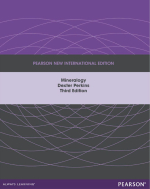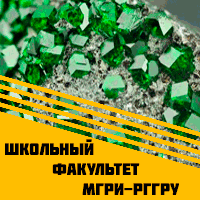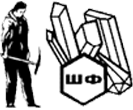Добрый день, Коллеги. Важное сообщение, просьба принять участие. Музей Ферсмана ищет помощь для реставрационных работ в помещении. Подробности по ссылке
Mineralogy / Минералогия
The word mineral means different things to different people. In ancient times, people divided all things on Earth into the animal, vegetable, or mineral kingdoms, so a mineral was any natural inorganic substance. Today, dieticians use the term to refer to nutritional elements such as calcium, iron, or sodium, while miners often use it for anything they can take out of the ground—including coal, sand, or gravel. Mineralogists and geologists of the twentieth century developed a more specific definition: Minerals are chemical compounds that are normally crystalline and form by geological processes. They must also have a well-defined chemical composition. For now it is sufficient to know that crystalline means “having an orderly and repetitive atomic structure,” and well defined means “varying within limits.” In the past, a substance was not considered a mineral if it was the result of an organic process. Today, however, that part of the definition has been dropped by some people who consider biogenic crystalline substances such as calcium phosphate (apatite) in bones or teeth, or calcium carbonate (calcite) in shells, to be minerals. Mineralogists have named and described more than 3,000 minerals; they discover about 50 more each year. <...>




